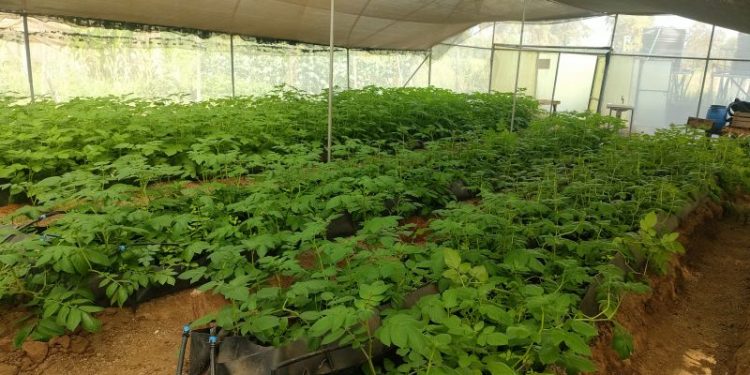Harnessing Technology to Combat Disease and Boost Potato Yields
Hydroponics is emerging as a transformative technology in the agricultural sector, particularly for producing high-quality, disease-free seed potatoes. This innovative method uses a controlled environment to grow seed potatoes in nutrient-rich water, effectively eliminating soil-borne pathogens. The adoption of hydroponic systems for seed potato production is gaining momentum, especially in Kenya, offering numerous benefits for farmers and the broader agricultural community.
Clean Seeds: The Foundation of High Yields
The importance of starting with clean seeds cannot be overstated in potato farming. Disease-free seed potatoes are essential for healthy crops and high yields. Hydroponic systems provide an ideal solution, as they allow for the cultivation of seed potatoes in a sterile environment, free from soil-borne diseases that can devastate traditional potato crops.
Key Advantages of Hydroponic Seed Potato Production
- Rapid Multiplication: Hydroponic systems enable the rapid multiplication of disease-resistant minitubers. This means farmers can produce a larger number of high-quality seed potatoes in a shorter period, enhancing their ability to meet market demands and expand their operations.
- Improved Quality: Seed potatoes grown hydroponically are provided with precise nutrients, ensuring optimal growth and quality. This controlled nutrient supply results in healthier plants and more robust yields, offering a significant advantage over traditional soil-based cultivation.
- Year-Round Production: One of the standout benefits of hydroponic production is its independence from seasonal weather patterns. This year-round production capability allows farmers to maintain a steady supply of seed potatoes, reducing their vulnerability to climatic fluctuations and enhancing food security.
Hydroponics in Kenya: Leading the Way
Kenya is at the forefront of adopting hydroponic technology for seed potato production. Farmers in the region are increasingly recognizing the benefits of this method, from improved disease resistance to higher yields. As the technology continues to prove its value, more farmers are expected to transition to hydroponic systems, further boosting the country’s potato production capabilities.
Conclusion
Hydroponic seed potato production represents a significant advancement in agricultural technology. By providing a method to produce clean, disease-free seed potatoes, hydroponics is helping farmers achieve higher yields and better quality crops. As this technology gains traction, particularly in regions like Kenya, it promises to revolutionize potato farming, offering a more sustainable and productive future for the industry.








